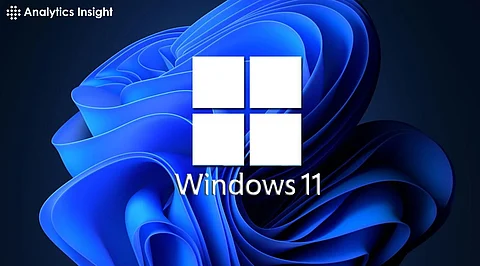

Microsoft has updated its policies from scratch. This significant policy shift wasn’t expected, especially the hardware compatibility update, which surprised the users. Basically, Windows 11 hardware requirements have been revised and updated, which affects the CPUs equipped with older Intel processors.
When Windows 11 was initially released, it was already pretty demanding about hardware compatibility. At the very beginning, it locked Intel CPUs older than 8th Gen from getting the update. However, that wasn’t the end; Microsoft has further plans for Windows 11, and the latest update has blocked 8th, 9th, or 10th-generation Intel processors.
The revised compatibility policy has mentioned that the new systems preloaded with Windows 11 24H2 will have a minimum of Intel's 11th-generation processors. This change is primarily targeted at the Original Equipment Manufacturers. With this latest update, manufacturers must incorporate newer CPUs in the upcoming Windows 11 devices. Otherwise, those devices will lose end-user benefits from the latest advancements in processing power and security features.
Now, the anxiety of the users who run Windows 11 on 8th, 9th, or 10th-generation Intel processors is understandable. Don’t worry; this updated policy won’t affect the existing devices. It’s just that new devices must follow the latest rules to run smoothly. Existing users will receive updates and support for their devices.
This decision came suddenly but wasn’t taken randomly, without careful consideration. Instead, Microsoft has analyzed the effects properly and decided to improve the hardware support criteria and make it more focused on security, reliability, and performance.
A deeper analysis will reveal that dropping older hardware and concentrating solely on newer processors is the best way that Microsoft can incorporate in the newer devices to strengthen virtualization-based security and hypervisor-protected code integrity.
The two above-mentioned technologies don’t run on Intel’s 8th, 9th, or 10th gen processors. These technologies are compatible with the latest CPUs. Therefore, to enable a more secure computing experience, this decision was required. It will make Windows 11 a secure platform for computing.
Now that Microsoft has announced this transition, there’s nothing to do from the users’ side, except for taking some essential measures to keep using the devices they have. While personal use won’t be heavily affected, organizations may suffer a hard time with their computing devices. One can find the below methods make things easier:
Check Current Hardware Status: The first thing one must do is to check the existing processors they are using on their Windows 11 system. If it’s higher than a 10th-gen processor, it’s okay. But even if it’s not, there’s no need to panic. Microsoft never mentioned the existing devices would stop working. Instead, the existing ones will keep receiving support from Microsoft. So, no need to make an overnight switch.
Plan for Future Upgrades: The next thing one should consider is switching to an upgraded system with at least an Intel 11th-generation processor. This is not very challenging for personal computers, but organizations will suffer a lot because of this new policy. So, they must develop a roadmap for hardware upgrades and integrate new-gen processors into the devices.
Keep Updated: For further security, keep in touch with Microsoft's official communications and support documentation. It will help one know about the latest policies and hardware compatibilities. This will help one to make wise decisions while upgrading their system.
Microsoft's latest decision shows the dedication of this company toward its user security and data protection. Microsoft is trying to strengthen its security policies so data leaks are reduced. Initially, this upgraded policy seems to harm users a lot, but in the long run, it will be beneficial for everyone.
